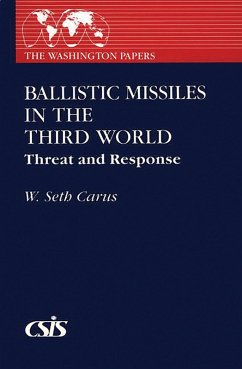
American Soldiers Overseas (eBook, PDF)
The Global Military Presence
Versandkostenfrei!
Sofort per Download lieferbar
40,95 €
inkl. MwSt.
Weitere Ausgaben:

PAYBACK Punkte
20 °P sammeln!
Over the past 60 years, the U.S. armed forces have created a web of military bases all over the world, from Australia to Iceland to Saudi Arabia. This is the aspect of military service that the majority of soldiers know and remember. Interaction between U.S. personnel and local populations is almost a given, and it is inevitable that the American and host communities will influence each other in numerous ways. This book looks at the history and impact of American military communities overseas. It discusses how U.S. bases affected economic and political life in the host communities, how host so...
Over the past 60 years, the U.S. armed forces have created a web of military bases all over the world, from Australia to Iceland to Saudi Arabia. This is the aspect of military service that the majority of soldiers know and remember. Interaction between U.S. personnel and local populations is almost a given, and it is inevitable that the American and host communities will influence each other in numerous ways. This book looks at the history and impact of American military communities overseas. It discusses how U.S. bases affected economic and political life in the host communities, how host societies shape the profile and activities of military communities, and what happens when relations break down. Through case studies of communities around the world, Baker shows that the U.S. armed forces have had a surprisingly large impact both positive and negative on the affairs of many (but not all) host societies, including economic revitalization, cultural change, and, sometimes, tragic social consequences. In not a few cases, the U.S. military presence has become politically controversial on a national level. On the other hand, many host nations have successfully circumscribed the activities of military communities, rendering their potentially disruptive presence almost invisible.













